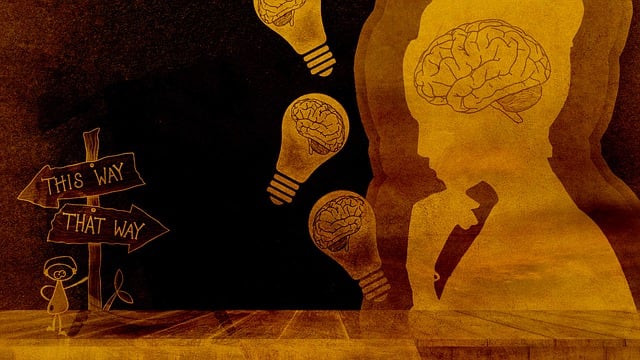Mental wellness is a critical aspect of recovery for sexual abuse survivors, with organizations like Boulder Sexual Abuse Survivor Therapy (BSAST) providing specialized support. Public awareness campaigns help destigmatize mental health issues among survivors, encouraging them to seek care. BSAST offers evidence-based approaches like CBT and group therapy, fostering emotional healing and resilience. Creating safe, judgment-free spaces is vital for trauma processing, with crisis interventions including mindfulness and stress management. Continuous well-being promotion through specialized counseling, mindfulness meditation, and education empowers survivors to rebuild their lives post-trauma, emphasizing the unique needs of Boulder's sexual abuse survivors.
Mental wellness promotion is a crucial aspect of holistic well-being, especially for survivors of sexual abuse. This comprehensive guide delves into understanding mental wellness and its significance, exploring the profound impact of sexual abuse on mental health. We offer a detailed overview of therapeutic approaches tailored for survivors, emphasizing Boulder Sexual Abuse Survivor Therapy techniques. Additionally, we discuss strategies to create supportive environments fostering healing and provide resources for continuous well-being promotion.
- Understanding Mental Wellness and Its Significance
- The Impact of Sexual Abuse on Mental Health
- Therapeutic Approaches for Survivors: A Comprehensive Overview
- Creating a Supportive Environment for Healing
- Resources and Strategies for Continuous Well-being Promotion
Understanding Mental Wellness and Its Significance

Mental wellness is a crucial aspect of overall well-being, encompassing our emotional, psychological, and social health. It involves maintaining a positive mindset, managing stress effectively, and cultivating healthy relationships. Recognizing and prioritizing mental wellness is essential for individuals to lead fulfilling lives, especially those who have experienced traumatic events like sexual abuse. In the case of Boulder Sexual Abuse Survivor Therapy, understanding and promoting mental wellness becomes a critical component of recovery.
The significance of mental wellness cannot be overstated, particularly when addressing issues arising from sexual abuse. Public awareness campaigns play a vital role in shedding light on mental health challenges, reducing stigma, and encouraging survivors to seek support. Additionally, risk management planning for mental health professionals is essential to ensure they can provide effective care without succumbing to burnout, which is prevalent in the healthcare sector, including Burnout Prevention Strategies for Healthcare Providers.
The Impact of Sexual Abuse on Mental Health

Sexual abuse can have profound and lasting impacts on an individual’s mental health. It often leads to a range of emotional distress, including anxiety, depression, and post-traumatic stress disorder (PTSD). Survivors may experience difficulty in forming healthy relationships, trust issues, low self-esteem, and feelings of shame or guilt. These symptoms can significantly affect daily functioning and overall well-being.
In Boulder, Sexual Abuse Survivor Therapy plays a crucial role in helping individuals navigate the complex journey of healing. Professional therapists specialized in this field provide safe spaces for survivors to process their traumatic experiences. Through evidence-based therapeutic approaches, they guide clients towards emotional regulation strategies, depression prevention techniques, and enhanced mental health awareness. This support is vital in helping survivors rebuild their lives, regain control, and develop resilience.
Therapeutic Approaches for Survivors: A Comprehensive Overview

Surviving sexual abuse can be a deeply traumatic experience, leaving individuals to grapple with complex emotions and lasting psychological effects. Fortunately, various therapeutic approaches have been developed specifically to support Boulder sexual abuse survivor therapy. These methods are designed to help survivors process their traumas, rebuild trust, and regain control over their lives. One such approach is cognitive behavioral therapy (CBT), which focuses on identifying and changing negative thought patterns and behaviors that may have developed as a result of the abuse. CBT empowers survivors to challenge distressing beliefs, enhance self-esteem improvement, and develop healthier coping mechanisms.
Additionally, group therapy sessions play a crucial role in fostering a sense of community and shared understanding among survivors. These supportive environments allow individuals to connect with others who have experienced similar traumas, reducing feelings of isolation. Through group discussions and activities, participants engage in mental wellness coaching programs development, learn valuable coping strategies from one another, and contribute to stigma reduction efforts by normalizing their experiences. By combining these therapeutic approaches, survivors can navigate the healing process at their own pace, ultimately achieving long-lasting mental wellness.
Creating a Supportive Environment for Healing

Creating a supportive environment is essential for fostering healing among individuals who have experienced sexual abuse. This involves cultivating spaces that are safe, non-judgmental, and empowering, mirroring the compassionate approach offered by Boulder Sexual Abuse Survivor Therapy. Through active listening, privacy, and confidentiality, survivors feel respected and understood, encouraging them to open up about their experiences. Such an environment promotes emotional well-being promotion techniques, allowing individuals to process trauma at their own pace.
In times of crisis, implementing effective intervention strategies becomes crucial. Crisis intervention guidance can help navigate intense emotions, offering practical coping skills development. This includes teaching mindfulness exercises, stress management techniques, and healthy coping mechanisms tailored to each individual’s needs. By providing these tools, supportive environments enable survivors to manage their mental health effectively, promoting long-term recovery and resilience.
Resources and Strategies for Continuous Well-being Promotion

Maintaining mental wellness is an ongoing journey that requires dedication and a variety of strategies. For those who have experienced sexual abuse, such as survivors in Boulder, access to specialized therapy like survivor-focused counseling or group support can be incredibly beneficial. These resources cater to the unique needs of survivors, helping them process trauma, rebuild trust, and develop healthy coping mechanisms.
Incorporating practices like mindfulness meditation into daily routines can further enhance mental well-being. Mental wellness coaching programs designed with a holistic approach can provide individuals with tools for self-care and stress management. Additionally, developing and implementing mental health education programs can raise awareness, foster understanding, and encourage open conversations about mental wellness. These initiatives, combined with personalized strategies, contribute to continuous promotion of well-being and resilience.
Mental wellness promotion is a holistic process that requires understanding, empathy, and effective therapeutic approaches. By recognizing the profound impact of sexual abuse on mental health, we can create supportive environments that foster healing for survivors in Boulder. The comprehensive overview of therapeutic methods provides valuable insights into helping individuals navigate their journey towards recovery. Utilizing resources and strategies for continuous well-being promotion ensures survivors have the tools to maintain resilience and thrive. It’s through these collective efforts that we can make a meaningful difference in the lives of sexual abuse survivors, empowering them to heal and prosper.














